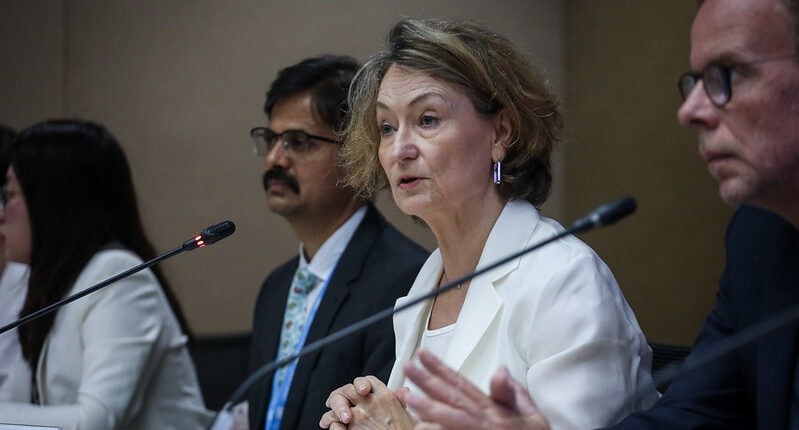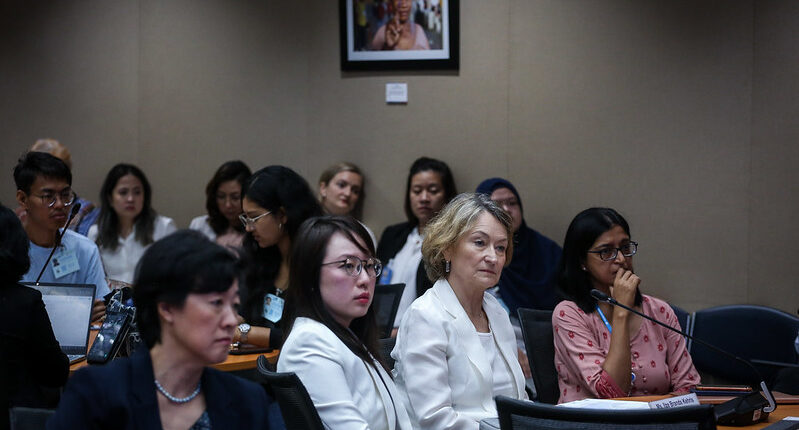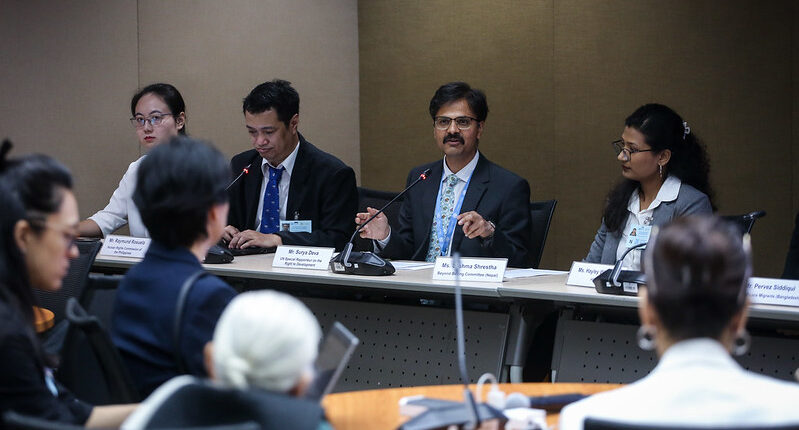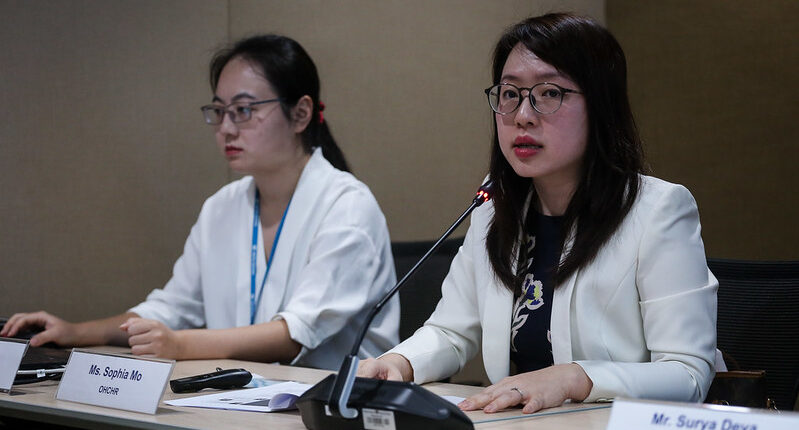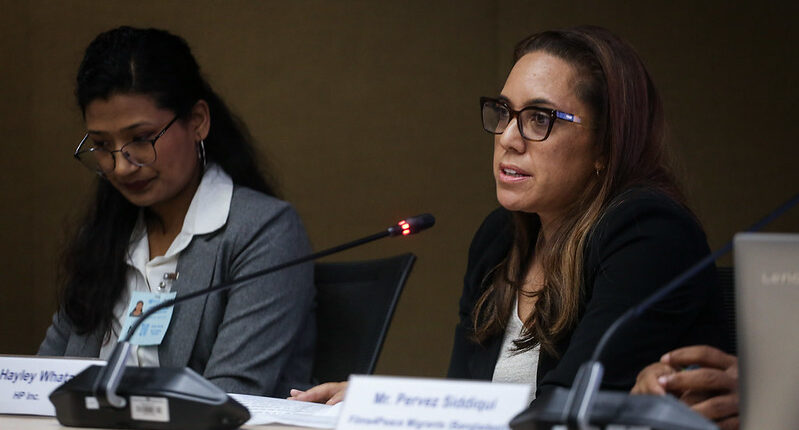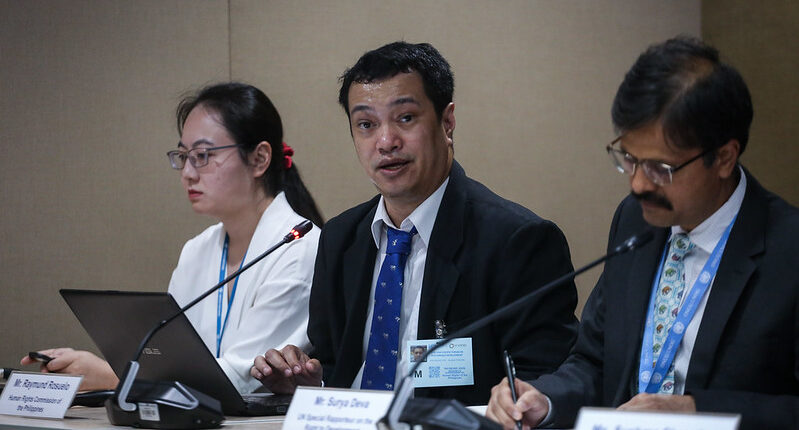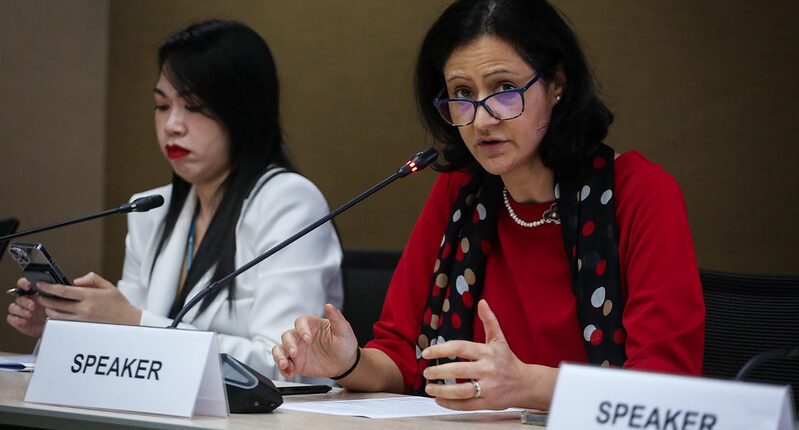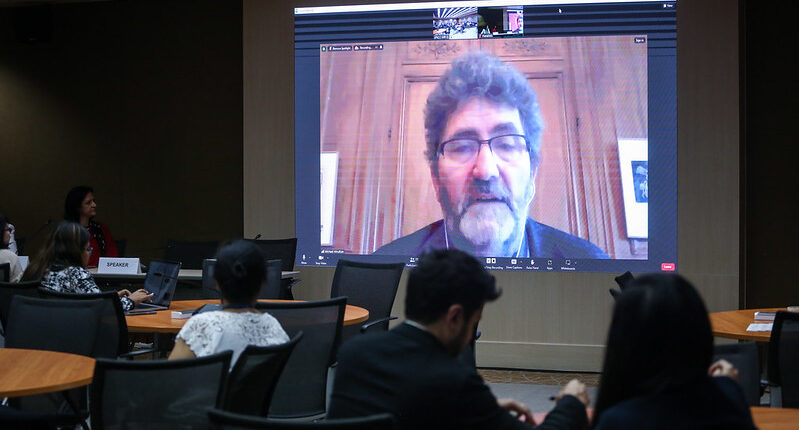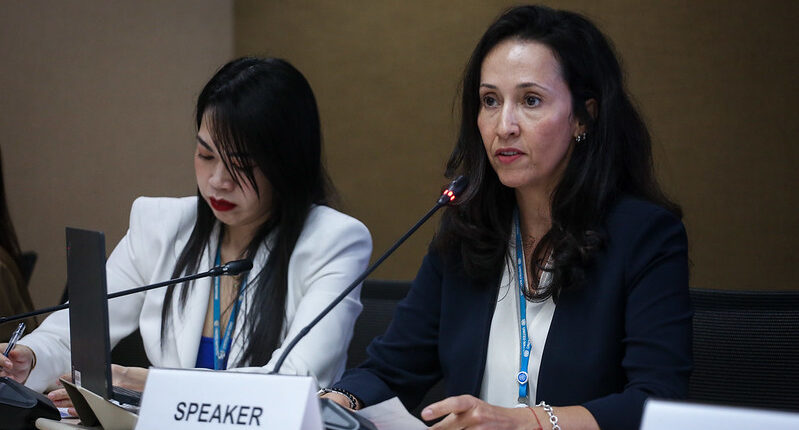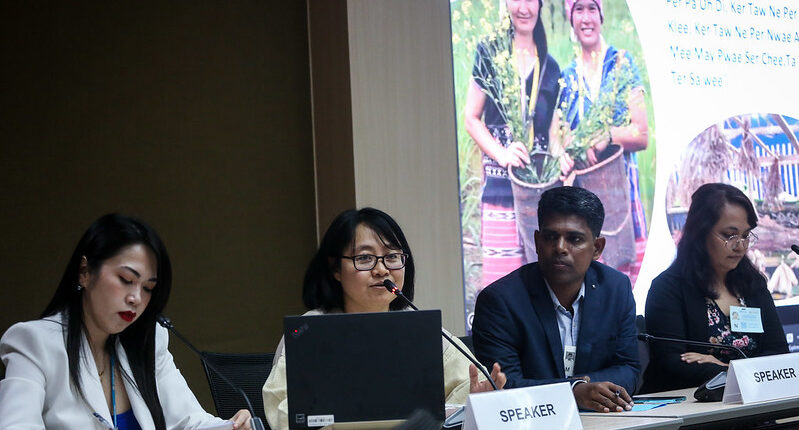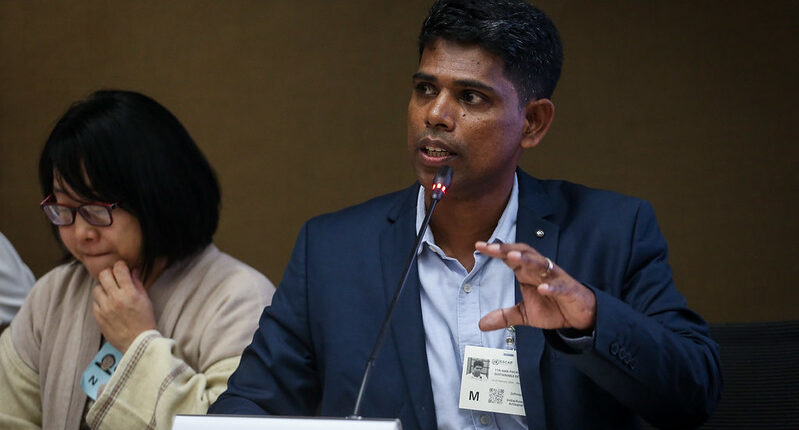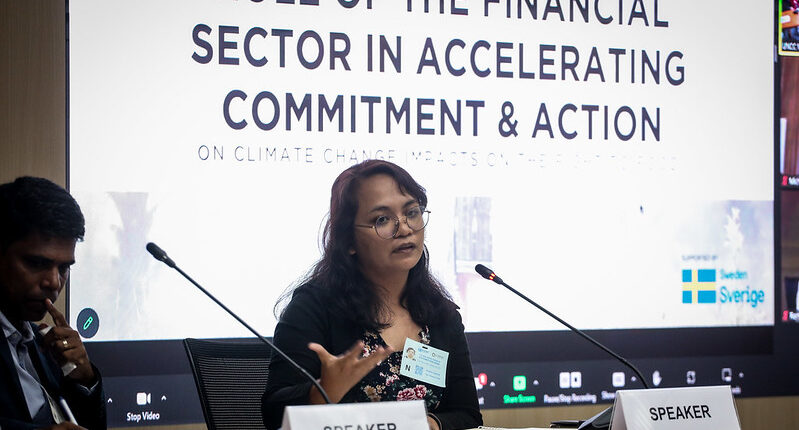Catalyzing action on the SDGs through human rights: UN Human Rights Office joins UN ESCAP and other UN agencies at 2024 Asia-Pacific Forum on Sustainable Development in Bangkok
“The SDGs are off track globally, but human rights can be the lever to put the SDGs back on track,” UN Assistant Secretary-General for Human Rights Ilze Brands Kehris said during a dynamic discussion on progress on Sustainable Development Goal 16 (SDG 16) – Peace, Justice, and Strong Institutions – at the Asia Pacific Forum on Sustainable Development (APFSD) in Bangkok, Thailand on 22 February.
“Democracy is under threat and civic space is shrinking. We are experiencing a climate emergency which is exacerbating inequalities, threatening peace and undermining development. SDG data collected by our Office shows that, compared to other regions, the proportion of killings of human rights defenders in the Asia Pacific remains high due to factors that include armed conflict and the violent suppression of protests in some countries in the region,” Brands Kehris said, setting the tone for action.
The Round Table, co-organized by the UN Human Rights Office for South-East Asia and the UN Development Programme, aimed to establish a shared understanding of the progress on the SDGs and their interlinkages, and craft recommendations for systemic challenges and solutions. Panelists, including UN Special Rapporteur Surya Deva alongside representatives from national human rights institutions, civil society, and youth groups engaged in robust discussions spanning the rule of law, human rights, trafficking, drug policy, and corruption.
The 11th APFSD, themed “Reinforcing the 2030 Agenda for Sustainable Development and eradicating poverty in times of multiple crises: The effective delivery of sustainable, resilient and innovative solutions in Asia and the Pacific,” took place from 20-23 February, 2024, at the United Nations Conference Center (UNCC) in Bangkok, Thailand.
The APFSD is an annual, inclusive intergovernmental forum designed to support the follow-up and review of progress on the 2030 Agenda for Sustainable Development and the Sustainable Development Goals (SDGs) at the regional level. It serves as a platform to inform, empower, and support Asia-Pacific countries in their efforts to achieve the 17 SDGs and their targets outlined in the 2030 Agenda. The reflections and discussions from the APFSD contribute to and inform the High-Level Political Forum (HLPF) in New York, which reviews sustainable development progress at the global level.
The UN Assistant Secretary-General for Human Rights also underscored the pivotal role of SDG 16 indicators in catalyzing progress across all SDGs. Noteworthy partnerships, such as the collaboration between the Philippines Human Rights Commission and the Philippines National Statistics Office, exemplify innovative approaches in bridging official statistics with citizen-generated data.
In parallel, the UN Human Rights Office for South-East Asia also moderated a breakout group on ‘Leaving no one behind and climate action’ and contributed to organizing a Round Table on SDG 13 – Climate Action in Asia and the Pacific), spotlighting the urgent need for concerted actions to address climate-related challenges. The session calls for early warning systems for climate action to be universally accessible, catering specifically to the diverse needs of indigenous peoples, children and youth, and persons with disabilities. The sessions also highlights right-based climate action including the promotion of access to information about climate change and climate action among people in vulnerable situations, civil society organizations, and environmental human rights defenders.
Empowering Peoples through Human Rights to Accelerate Climate Resilience and Food Security in Asia-Pacific
The UN Human Rights Office for South-East Asia, in collaboration with Food and Agriculture Organization of the United Nations (FAO), Asia Indigenous Peoples Pact (AIPP) and Fair Finance Asia (FFA) also co-organised a side event titled “Empowering Peoples through Human Rights to Accelerate Climate Resilience and Food Security in Asia-Pacific. The side event focused on empowering individuals, especially, indigenous peoples and small-scale food producers such as artisanal fisherfolks, through human rights to accelerate climate resilience and food security
Katia Chirizzi, Deputy Representative of the UN Human Rights Office for South-East Asia, in her opening remarks, called for the urgent need to dismantle the deadly nexus of crises of hunger, climate change, and conflict to safeguard peace and security.
The side event was also joined by Michael Windfuhr, a member of the UN Committee on Economic, Social, and Cultural Rights, who echoed the need for an inclusive approach. He emphasized the importance of recognizing and empowering communities living in vulnerable situations, who are at the frontlines of the triple planetary crises.
“It’s important to have a fair recognition or empowering people as a main element of a rights-based approach to deal with the climate change. We have to think about climate adaptation otherwise people living in vulnerable situations will very often be forgotten, these discriminations of marginalized people have to be overcome to deal with climate change. Taking care of those who might be negatively affected is the first step in mitigating or dealing with the situation these people might face”, he said.
Panelists at the side event reiterated the urgency of adopting a human rights-based approach to climate action and underscored the need to empower communities for increased resilience to climate change. They highlighted the role of the financial sector in supporting sustainable practices and ensuring equitable distribution of resources, particularly to small-scale producers impacted by climate change. The panel called for the full and effective participation of indigenous peoples in policymaking processes, acknowledging the critical importance of their land rights and traditional knowledge as solutions to climate and food security.
Speaking at at the APFSD Plenary as the culmination of the APFSD events, UN Assistant Secretary General Ilze Brands Kehris urged regional governments to integrate human rights in sustainable development strategies. She highlighted the interconnectedness of peace, development, and human rights, advocating for urgent action to address concerns such as restrictions on civic space, attacks on human rights defenders, and climate change-induced inequalities. She also emphasized the criticality of robust partnerships and inclusive, rights-based data initiatives in safeguarding progress under the 2030 Agenda.
Learn more about the Round Table and side event:
- SDG 13: concept note
- SDG 16: concept note, presentation, and profile of SDG 16.
- Side event: empowering peoples through human rights to accelerate climate resilience and food security.
See also: https://www.unescap.org/events/apfsd11
